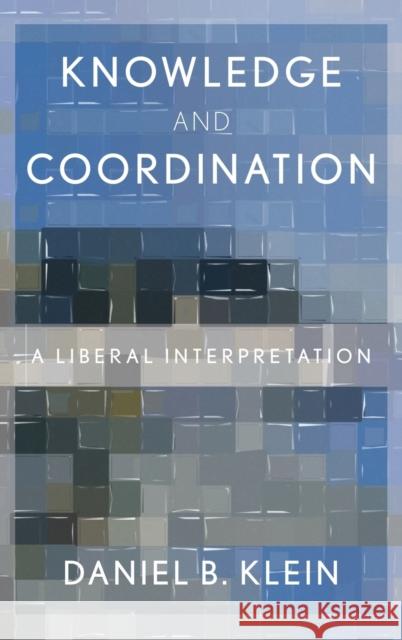Knowledge and Coordination: A Liberal Interpretation » książka
topmenu
Knowledge and Coordination: A Liberal Interpretation
ISBN-13: 9780199794126 / Angielski / Twarda / 2012 / 384 str.
Knowledge and Coordination: A Liberal Interpretation
ISBN-13: 9780199794126 / Angielski / Twarda / 2012 / 384 str.
cena 355,34
(netto: 338,42 VAT: 5%)
Najniższa cena z 30 dni: 326,05
(netto: 338,42 VAT: 5%)
Najniższa cena z 30 dni: 326,05
Termin realizacji zamówienia:
ok. 16-18 dni roboczych.
ok. 16-18 dni roboczych.
Darmowa dostawa!
Too often in economics the understanding of how things work by and large--not axiomatically or categorically--and the idea that we generally cannot know the economic system well enough to intervene into it beneficially are done less than justice. Yet they were Adam Smith's central messages for public policy, and they authorized a presumption of liberty, thus exceptions to liberty should be treated as exceptional and bear the burden of proof.
In Knowledge and Coordination, Daniel Klein reexamines the elements of economic liberalism. He interprets Friedrich Hayek's notion of spontaneous order from the aestheticized perspective of an allegorical Smithian spectator. Klein addresses issues economists have had surrounding the notion of coordination by distinguishing the concatenate coordination of Hayek, Ronald Coase, and Michael Polanyi from the mutual coordination of Thomas Schelling and game theory. Clarifying the meaning of "cooperation," he resolves debates over whether entrepreneurial innovation enhances or upsets coordination. Entrepreneurship is interpreted in terms of discovery, or new knowledge. He points out that beyond information, knowledge entails interpretation and judgment. Rejecting homo economicus, Klein offers a distinctive formulation of knowledge economics, entailing asymmetric interpretation, judgment, entrepreneurship, error and correction. This richness of knowledge joins agent and analyst, and meaningful theory depends on tacit affinities between the two, even common contacts with an allegorical spectator. Knowledge and Coordination illuminates the recurring connections to underlying purposes and sensibilities, of analysts as well as agents. Knowledge and Coordination is an imaginative and insightful take on how, by confessing the looseness of its judgments and the by-and-large status of its claims, laissez-faire liberalism makes its economic doctrines more robust and its presumption of liberty more viable.










